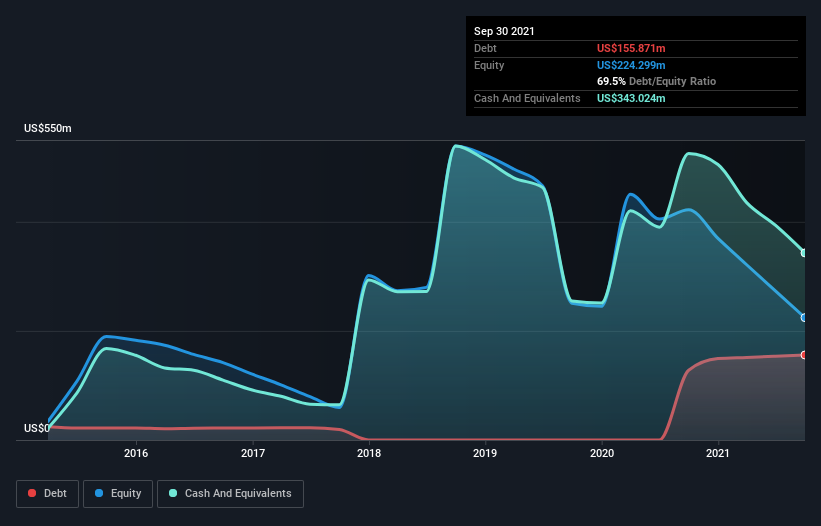Is Zogenix (NASDAQ:ZGNX) Using Too Much Debt?
Some say volatility, rather than debt, is the best way to think about risk as an investor, but Warren Buffett famously said that 'Volatility is far from synonymous with risk.' So it seems the smart money knows that debt - which is usually involved in bankruptcies - is a very important factor, when you assess how risky a company is. As with many other companies Zogenix, Inc. (NASDAQ:ZGNX) makes use of debt. But the more important question is: how much risk is that debt creating?
What Risk Does Debt Bring?
Debt is a tool to help businesses grow, but if a business is incapable of paying off its lenders, then it exists at their mercy. In the worst case scenario, a company can go bankrupt if it cannot pay its creditors. While that is not too common, we often do see indebted companies permanently diluting shareholders because lenders force them to raise capital at a distressed price. Of course, plenty of companies use debt to fund growth, without any negative consequences. When we think about a company's use of debt, we first look at cash and debt together.
See our latest analysis for Zogenix
What Is Zogenix's Net Debt?
The image below, which you can click on for greater detail, shows that at September 2021 Zogenix had debt of US$155.9m, up from US$128.0m in one year. However, its balance sheet shows it holds US$343.0m in cash, so it actually has US$187.2m net cash.
How Healthy Is Zogenix's Balance Sheet?
According to the last reported balance sheet, Zogenix had liabilities of US$78.4m due within 12 months, and liabilities of US$194.3m due beyond 12 months. Offsetting these obligations, it had cash of US$343.0m as well as receivables valued at US$9.49m due within 12 months. So it actually has US$79.8m more liquid assets than total liabilities.
This short term liquidity is a sign that Zogenix could probably pay off its debt with ease, as its balance sheet is far from stretched. Simply put, the fact that Zogenix has more cash than debt is arguably a good indication that it can manage its debt safely. There's no doubt that we learn most about debt from the balance sheet. But it is future earnings, more than anything, that will determine Zogenix's ability to maintain a healthy balance sheet going forward. So if you want to see what the professionals think, you might find this free report on analyst profit forecasts to be interesting.
In the last year Zogenix wasn't profitable at an EBIT level, but managed to grow its revenue by 797%, to US$64m. When it comes to revenue growth, that's like nailing the game winning 3-pointer!
So How Risky Is Zogenix?
Statistically speaking companies that lose money are riskier than those that make money. And the fact is that over the last twelve months Zogenix lost money at the earnings before interest and tax (EBIT) line. Indeed, in that time it burnt through US$178m of cash and made a loss of US$243m. But the saving grace is the US$187.2m on the balance sheet. That kitty means the company can keep spending for growth for at least two years, at current rates. Importantly, Zogenix's revenue growth is hot to trot. While unprofitable companies can be risky, they can also grow hard and fast in those pre-profit years. The balance sheet is clearly the area to focus on when you are analysing debt. But ultimately, every company can contain risks that exist outside of the balance sheet. For example - Zogenix has 2 warning signs we think you should be aware of.
At the end of the day, it's often better to focus on companies that are free from net debt. You can access our special list of such companies (all with a track record of profit growth). It's free.
Have feedback on this article? Concerned about the content? Get in touch with us directly. Alternatively, email editorial-team (at) simplywallst.com.
This article by Simply Wall St is general in nature. We provide commentary based on historical data and analyst forecasts only using an unbiased methodology and our articles are not intended to be financial advice. It does not constitute a recommendation to buy or sell any stock, and does not take account of your objectives, or your financial situation. We aim to bring you long-term focused analysis driven by fundamental data. Note that our analysis may not factor in the latest price-sensitive company announcements or qualitative material. Simply Wall St has no position in any stocks mentioned.

